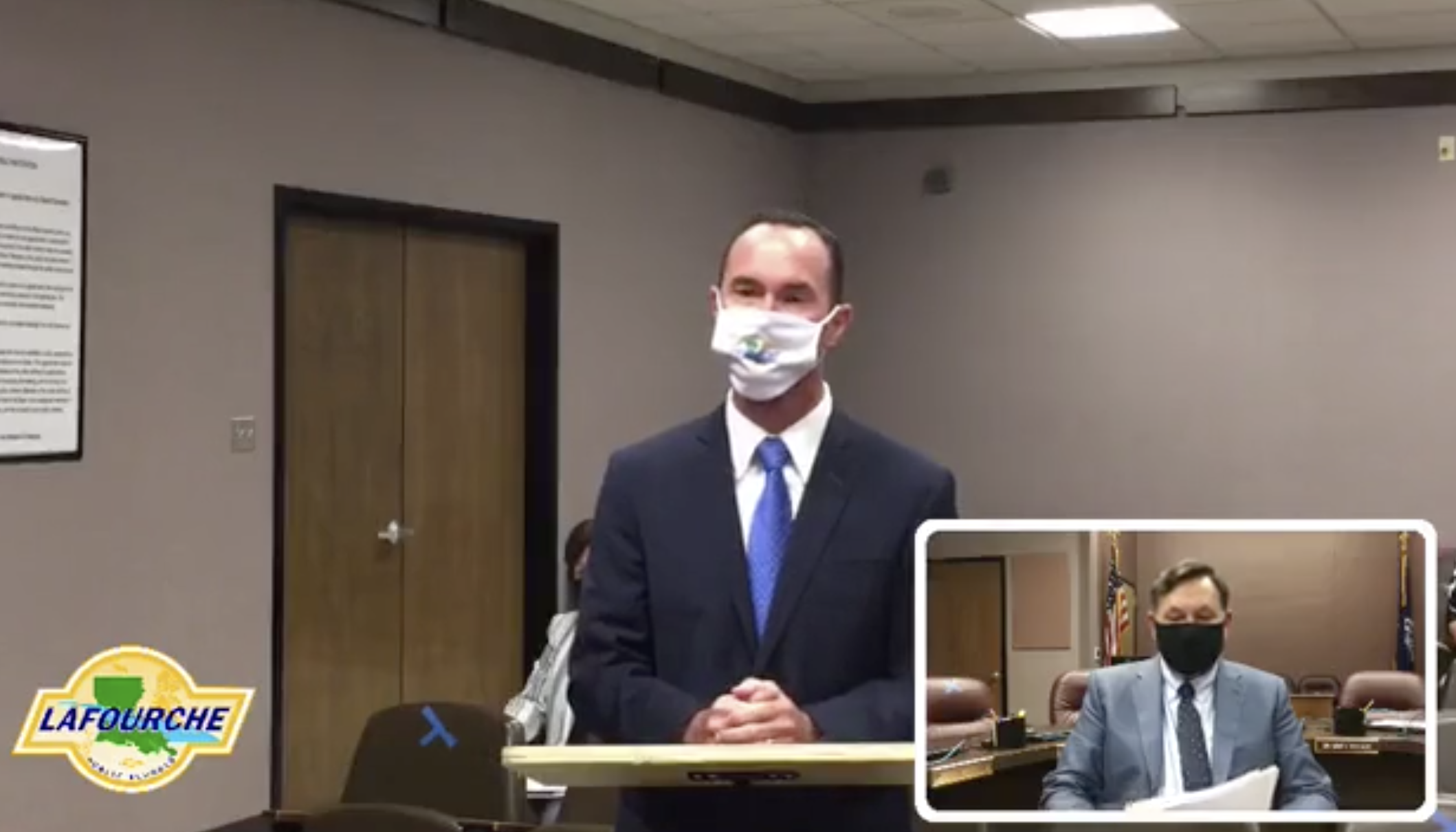
Crawfish growth, prices suffer from cold
February 13, 2014
Adela Chauvin Trosclair
February 18, 2014Jeremiah Wright, who decapitated and dismembered his 7-year-old special-needs son 2 1/2 years ago, was found not guilty by reason of insanity Friday after expert witnesses called by both the state and the defense agreed he suffered from a “major mental disorder that prevented him from knowing right from wrong” when the homicide occurred.
Wright, 32, will be confined at the forensic division of the state-run East Louisiana Mental Health System in Jackson, La. There he will be compelled to take medication to dull the effects of psychosis, the mental illness attributed for Wright’s consistently conveyed delusion that his son was an inanimate object and the root of a multi-agency social experiment that had long been conducted upon him.
“This was absolutely the only decision that could be made based on medical history and testimony,” District Judge John LeBlanc said during ruling, which came at a pre-trial hearing. “It is not a good day for (Jori’s family). It is not a good day for anyone involved. … I believe (Wright) should be kept in jail for the rest of his life.”
Jori’s mother Jesslyn Lirette sobbed audibly as the verdict was rendered. Jesslyn’s longtime live-in boyfriend Wright, in faded red Lafourche Parish Detention Center scrubs, his hands and feet shackled and with a long stringy beard and gaunt eyes, glanced at her from his seat in the jurors’ box but was otherwise absent emotion.
LeBlanc’s technical ruling was not guilty and not guilty by reason of insanity. Wright cannot be tried again for the crime.
Two witnesses, both psychiatrists with an emphasis in forensics, were called during the nearly two-hour long hearing.
Sarah Deland, retained by the defense team, examined Wright on four occasions – the first being Aug. 19, 2011, first five days after the homicide, and most recently on Jan. 15.
In addition to Deland’s interviews of Wright, she drew from records before the Jori’s death: a flare-up at a foster home coupled with homicidal declarations, an emergency room visit, hospitalization and trips to a mental health clinic.
Deland surmised Wright gradually became psychotic, and it climaxed with him slaying Jori, who had cerebral palsy, used a wheelchair for mobility and was fed through a tube.
From his first interviews with arresting officers – called to the scene after a passerby spotted Jori’s head alongside West Seventh Street in Thibodaux – Wright maintained that Jori was an inanimate object. The specifics changed – ranging from a robot to a CPR dummy – but the overarching delusion that Jori was “a prop” remained consistent, Deland testified.
Further, Wright repeatedly told inquirers he believed he had to kill his son in order to break free of the social experiment. Wright believed he had a chip in his head and told doctors of a running commentary only he could hear in which external people were talking about him, musings that started friendly but devolved into castigation, Deland said.
“He believes all of us are a part of (the experiment),” Deland told the court, “still, to this day.”
George Seiden, retained by the state, agreed with Deland’s testimony.
Seiden told the court Wright’s manufactured reality encumbered his ability to think and was complex to the point Wright could not be malingering.
“It makes so much crazy sense, if you will,” Seiden said.
Seiden further stated it appears Wright suffers from Capgras syndrome, which is the delusional belief that loved ones have been replaced by imposters. Should Wright’s condition worsen, he could be pose a “grave danger” to friends, family and the public at large, Seiden said.
Regarding Wright’s reported deviations from the overarching delusion during his first stay at ELMHS, which marked a five-day hearing to determine Wright’s competency to proceed to trial last year, Seiden opined it was learned behavior.
“He’s capable of saying the right thing, but that does not mean he believes what he’s saying,” Seiden said. Seiden earlier said Wright expressed in one interview the criminal process would culminate in some form of glory, as in he “felt lucky because he was about to be rich and go into space,” the psychiatrist recalled him saying.
“He is always going to be psychotic,” Seiden said.
District Attorney Cam Morvant II said all five forensic psychiatrists who studied Wright, for the state and the defense, reached similar conclusions – that Wright’s mental illness at the time of the crime “prevented him from knowing right from wrong.” Morvant said his office does not aim to prosecute the innocent or mentally ill.
“I’ve discussed with about every assistant DA at some point … and the consensus has been that he is mentally ill,” Morvant said.
The district attorney said his office and Jori’s family were always aware not guilty by means of insanity was a potential verdict.
“(The family) was prepared for this. I’ve had multiple meetings with the family members over two-and-a-half years. I have been honest and candid with them the whole way through. I told them probably two years ago that this day may come.”
Kerry Cuccia, director of the nonprofit Capital Defense Project of Southeast Louisiana and Wright’s lead attorney, repeatedly used the word justice to describe the pre-trial adjudication.
“Justice was done today in a way the system was designed for justice to be,” Cuccia said. “Whether you call it the best- or worst-case scenario, it is the result that the law ordains.”
Citing the fact Wright was charged with first-degree murder in a capital case, LeBlanc said he would not call a contradictory hearing, in which not-guilty-by-insanity defendants are given a forum to prove they are not a danger to society and should be discharged.
LeBlanc ordered ELMHS to provide him with progress reports every six months. Should the state’s doctors, or Wright’s future representation, feel he is rehabilitated to the extend he is no longer a danger to society, they could request a hearing to request his incarceration be relaxed, Cuccia said.
Both Morvant and LeBlanc said they would be steadfast in opposition to any form releasing Wright.
“I will do everything in my power to make sure he’s never released,” Morvant said.









